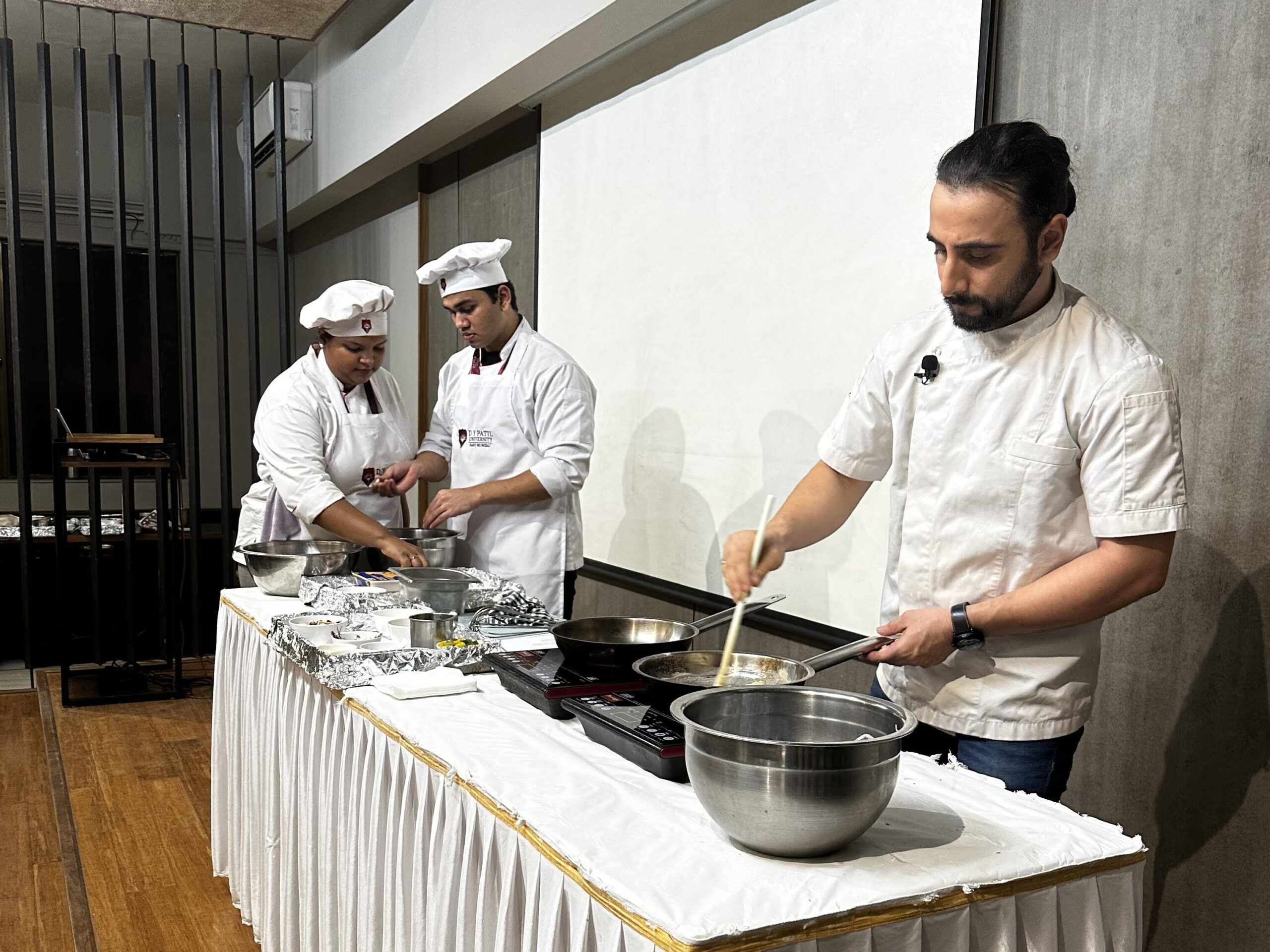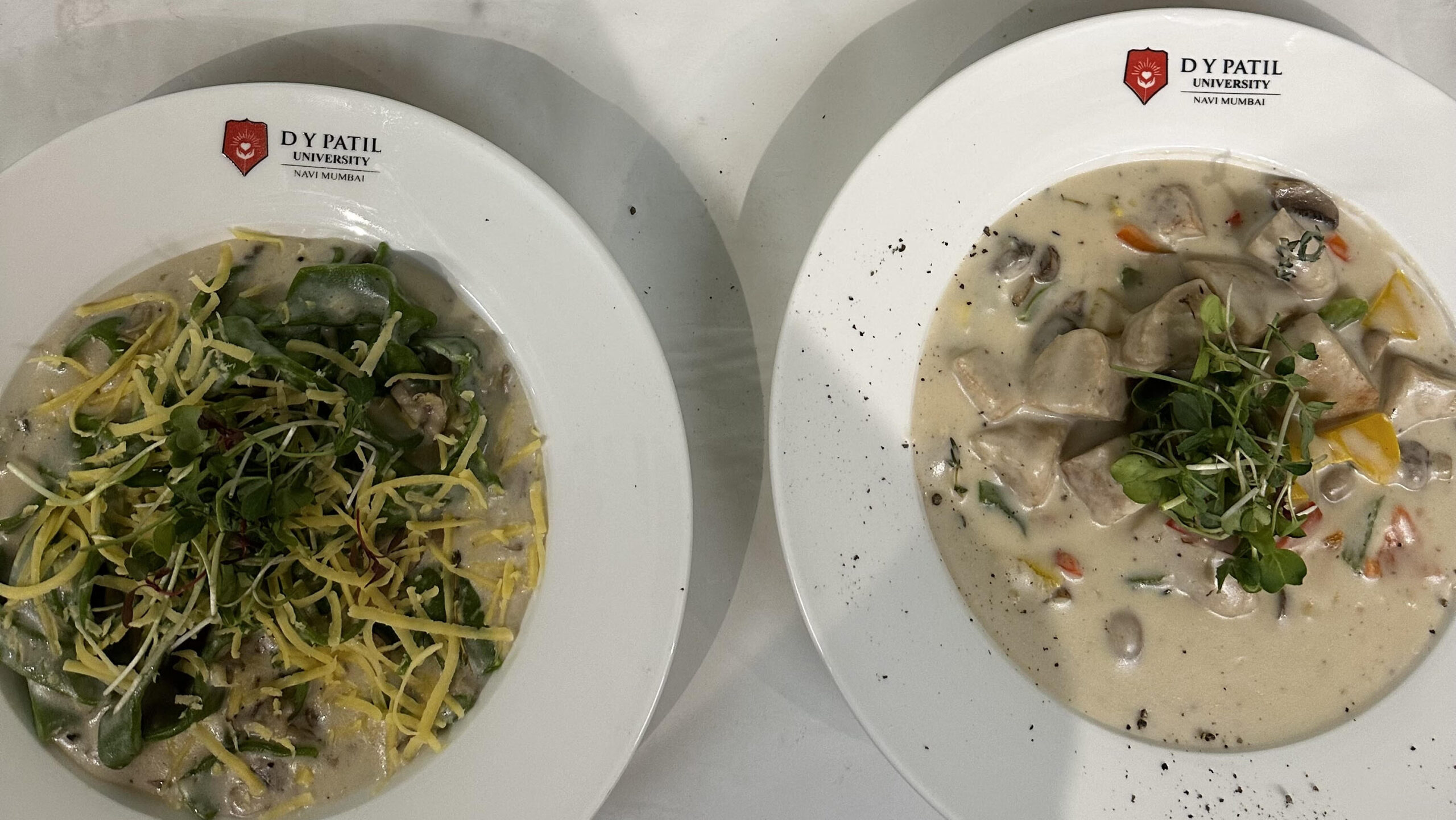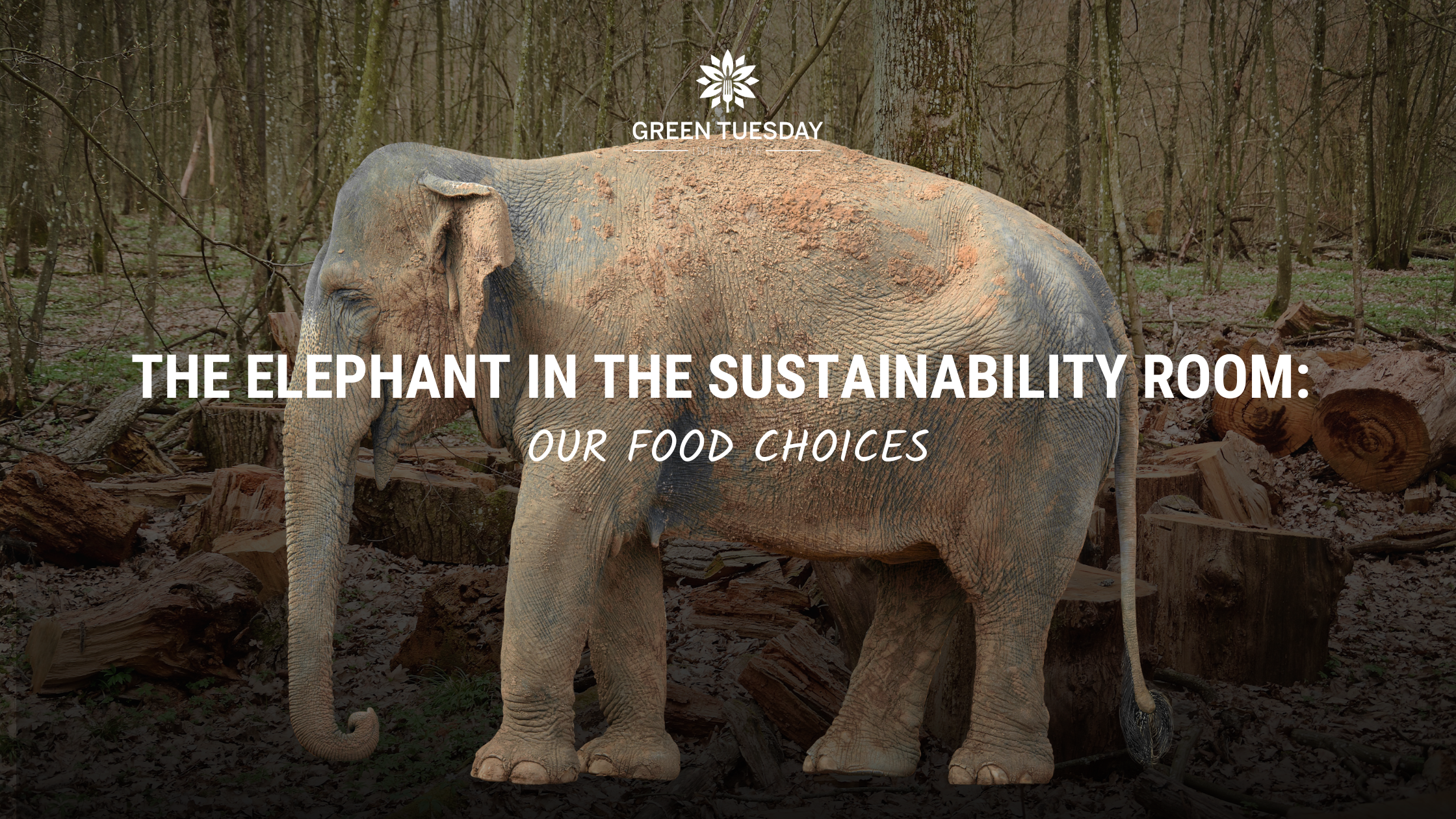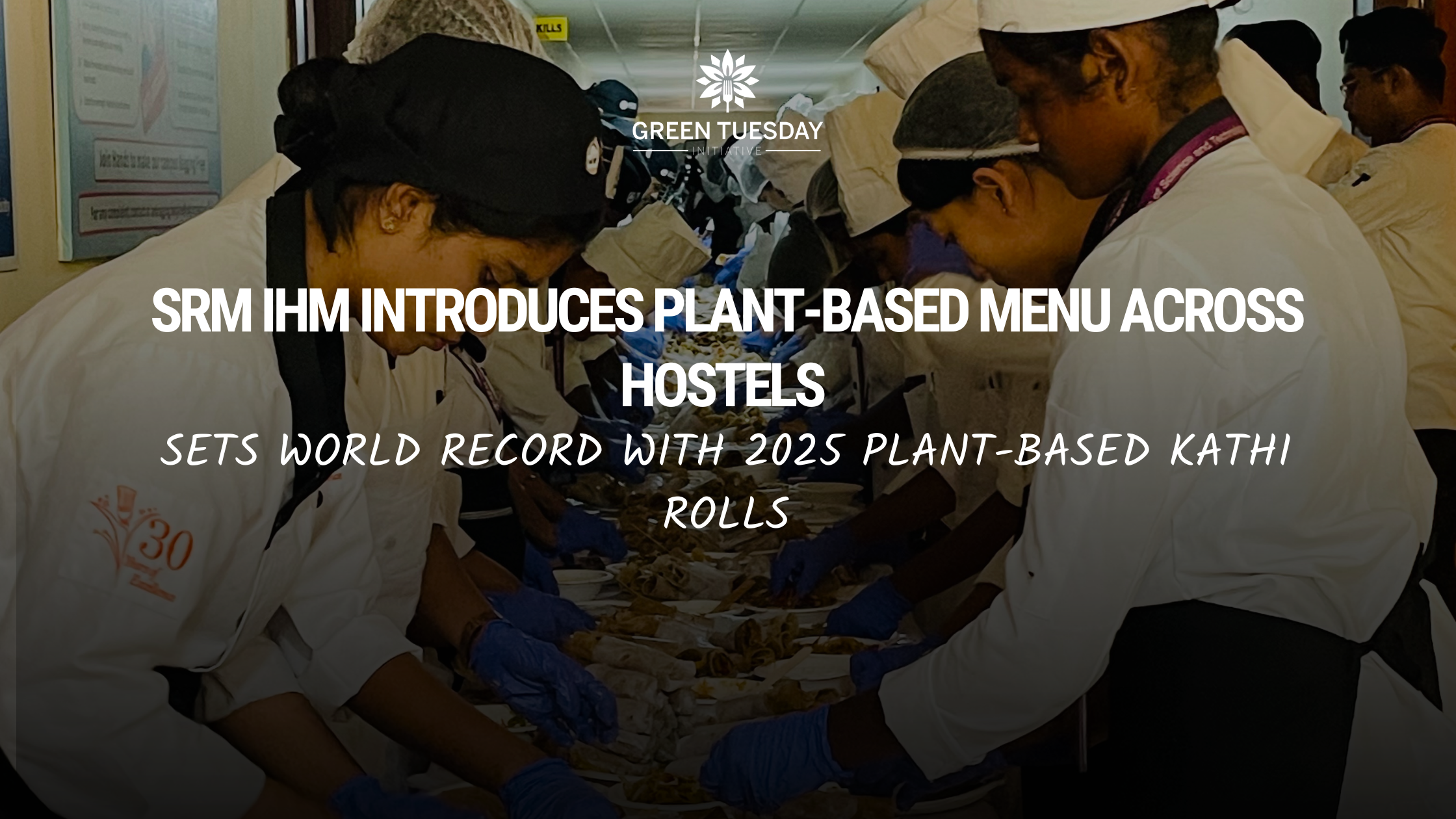Green Tuesday Initiative, in partnership with PCRM and Chef Reishu Sharma, organized an exciting plant-based cooking workshop at D.Y. Patil School of Hospitality and Tourism Studies. Students got hands-on experience cooking with plant-based ingredients and learned about the growing demand for plant-based food, career opportunities in the field, and the health benefits of plant-based eating.
D.Y. Patil School of Hospitality and Tourism Studies is one of India’s leading institutes for hotel management and tourism. They partnered with the Green Tuesday Initiative in 2019, committing to serve more vegan food in the campus to reduce their environmental footprint. With this workshop, the institute took one step further in making their students future-ready to serve the growing number of vegan consumers.
Preparing for the plant-based future
The event started with a session on food and lifestyle choices by Dr. Zeeshan Ali, a health researcher and the India Program Specialist at the Physicians Committee for Responsible Medicine (PCRM) in Washington, D.C. He spoke about how plant-based nutrition can help prevent chronic diseases and showcased some case studies highlighting the benefits of a vegan diet for people and the planet. Students were eager to learn more about plant-based food and asked many questions about the health and environmental impact of food.
After the informative session, Chef Reishu Sharma, founder of Plan B Foods, conducted a special training workshop on plant-based cooking, in which the students learned how to make tasty and healthy vegan alternatives like almond ricotta cheese, vegan Chicken à la King, and Pasta ai Funghi.
Chef Reishu also shared his inspiring story about how he embraced plant-based food and his entrepreneurial journey. He is the winner of the prestigious Gourmand Award for his cookbook called From India with Love.

Green Tuesday Initiative and Food Sustainability
Green Tuesday Initiative is India’s leading food sustainability campaign that helps institutions fight climate change by enabling them to serve more sustainable plant-based food to their students. Since 2018, the campaign has partnered with over 45 educational institutes and corporations in India, including Pondicherry University, ZF, Tech Mahindra, Zostel, Lovely Professional University, and more, helping them serve more climate-friendly, plant-based food.
Three other premier hospitality institutes in India – Bharath Institute of Higher Education and Research, Empee Institute of Hotel Management and Catering Technology, and Vels Institute of Science, Technology & Advanced Studies – have also partnered with the Green Tuesday Initiative in their campus to serve more vegan food to their students and introduce plant-based cooking to them. “By initiating a dialogue around sustainability with hospitality institutions, we hope to inspire these students to venture into the vibrant world of plant-based food that is better for our health, the animals, and our planet,” notes Sowndarya Ganesan, Campaigns Specialist, Vegan Outreach.

Pallavi Chaudhary, Director of D.Y. Patil School of Hospitality and Tourism Studies, also believes that hospitality students must adapt to the evolving food habits of the world. In her words, “Our students are the future of the culinary industry, and by embracing plant-based menus, we’re ensuring they graduate not only with exceptional culinary skills but also a deep understanding of their role in creating a greener and more compassionate industry. We need more future-ready chefs.”
According to IBEF, the plant-based food market in India is expected to develop at an 11.8% CAGR between 2021 and 2028. Exposure to plant-based food in hospitality institutions opens new doors to innovation and career opportunities. Students gain valuable insights into plant-based culinary practices, preparing them for a new-age culinary industry with sustainability as a major focus.
Green Tuesday Initiative plans to conduct more specialized workshops and capacity-building sessions with the students of these hospitality schools and hopes to introduce plant-based cooking in the culinary curriculum of leading institutions.
Also read: How fighting climate change with diet change can effectively reduce your environmental footprint.




